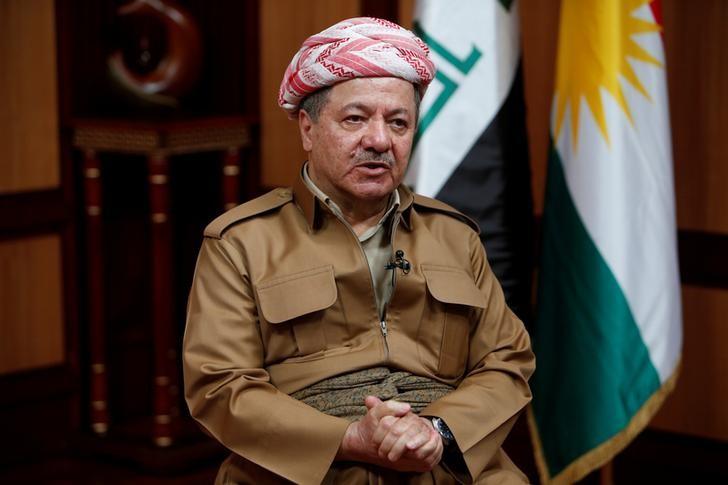Erbil– Iraq’s Kurds insist on holding the independence referendum on September 25 as planned, despite an official US request for postponing it, a high-ranking Kurdish official stated on Saturday.
US and other Western nations fear that the vote could create a new conflict with Baghdad and create regional unrests.
Although Turkey, Iran, Syria, and Iraq have sizeable Kurdish populations, they are all against an independent Kurdistan.
Top official at the Kurdistan Democratic Party led by Kurdistan Regional Government President Massoud Barzani, Hoshyar Zebari announced that: “The date is standing, Sept. 25, no change.”
US Secretary of State Rex Tillerson asked Barzani to postpone the referendum during a phone call on Thursday, Zebari told Reuters.
According to the statement issued by Kurdistan Regional Government (KRG) presidency on Friday, the President stated that the people of the Kurdistan Region would expect guarantees and alternatives for their future.
“The US Secretary of State…also stated he would rather see the referendum in Kurdistan to be postponed, and he reiterated his support for dialogue and negotiation between the [Kurdistan] Region and Baghdad,” the statement read.
Barzani told Tillerson that the kind of coexistence that the Kurdistan Region had worked for with Iraq in the past and over various stages was not implemented, and that is why Kurdistan decided to take its own path, the statement continued.
According to the statement, Barzani asked US State Secretary: “What kind of guarantees and alternatives are there for the future of Kurdistan?”
Tillerson “commended President Barzani and the leadership of Kurdistan for the decision to form and send Kurdistan’s high delegation to Baghdad in order to negotiate the political issues,” the statement added.
Earlier in June, US State Department stated it was concerned that the referendum will distract from “more urgent priorities” such as the defeat of ISIS militants.
Kurds have been seeking an independent state since the end of World War One, when colonial powers divided the Middle East, except for their territory which ended up split between Turkey, Iran, Iraq and Syria.
In July, Barzani told Reuters that the Kurds would take the responsibility for the expected approval outcome of independence, and pursue its implementation through dialogue with Baghdad and regional powers to avoid conflict.
Barzani’s father led struggles against Baghdad in the 1960s and 1970s.
“We have to rectify the history of mistreatment of our people and those who are saying that independence is not good, our question to them is, ‘if it’s not good for us, why is it good for you?’,” he said in an interview in Erbil.
Kurdish officials announced that the referendum will also take place in disputed areas to determine whether they would want to remain or not in Kurdistan, including the oil-rich Kirkuk region, north Iraq.
In 2014, Kurdish Peshmerga prevented ISIS from capturing Kirkuk after the Iraqi army fled in the face of the militants. Kurds are also effectively running the region, claimed by both Turkmen and Arabs.
Iran-backed Iraqi Shi’ite militias threatened to expel the Kurds by force from this region and three other disputed areas: Sinjar, Makhmour and Khanaqin.
